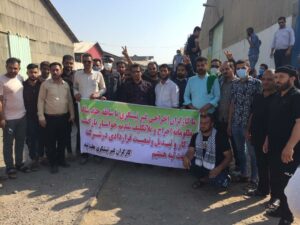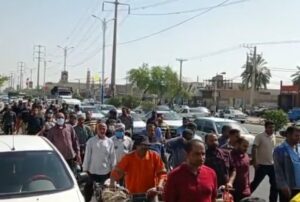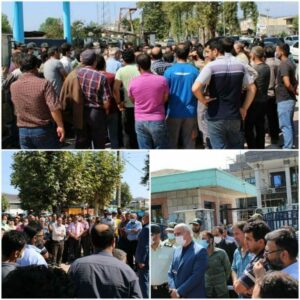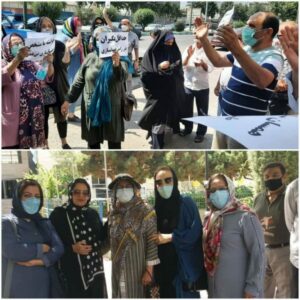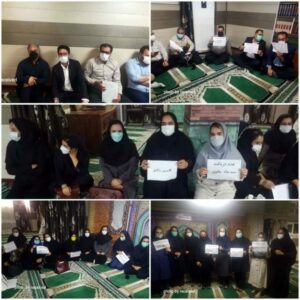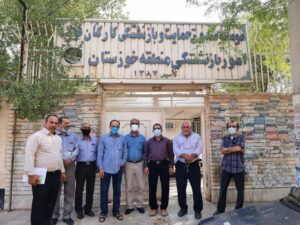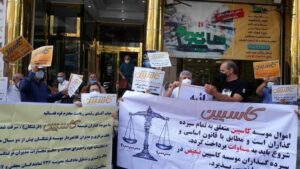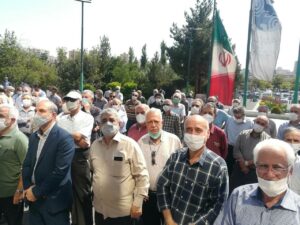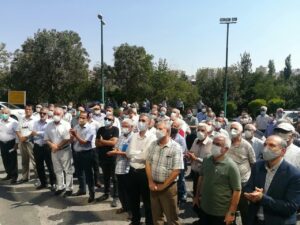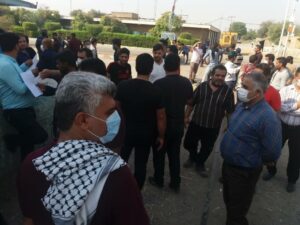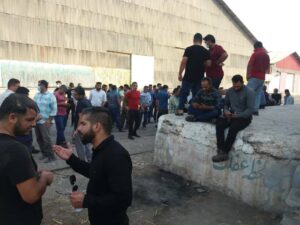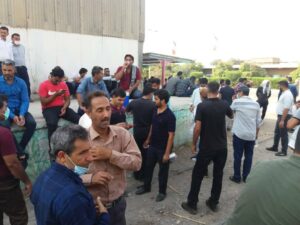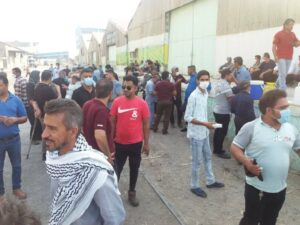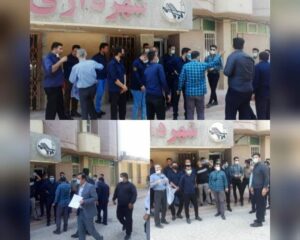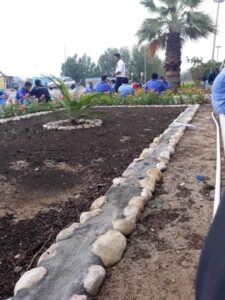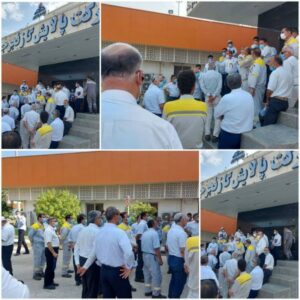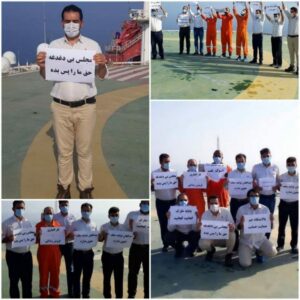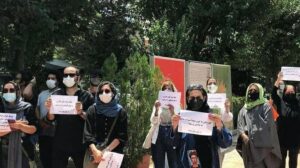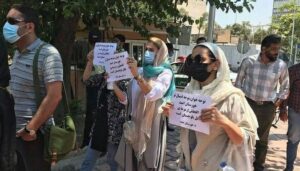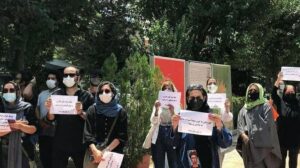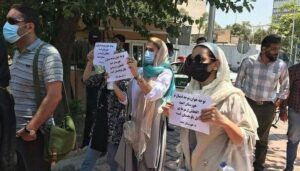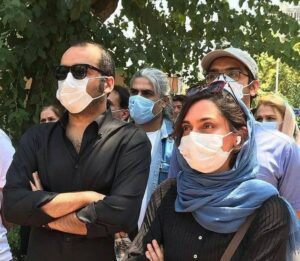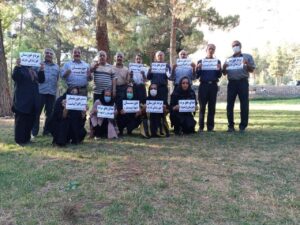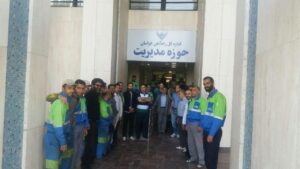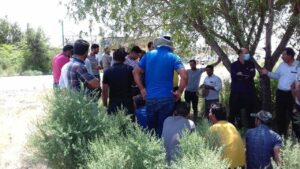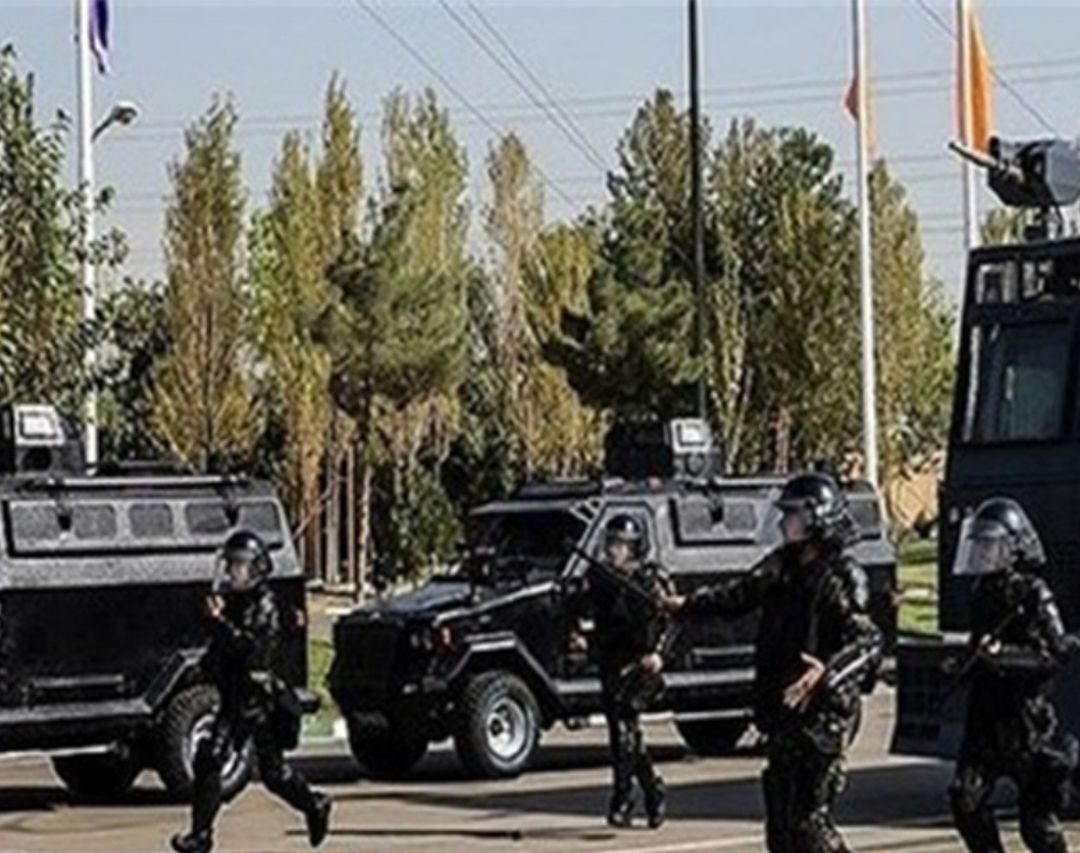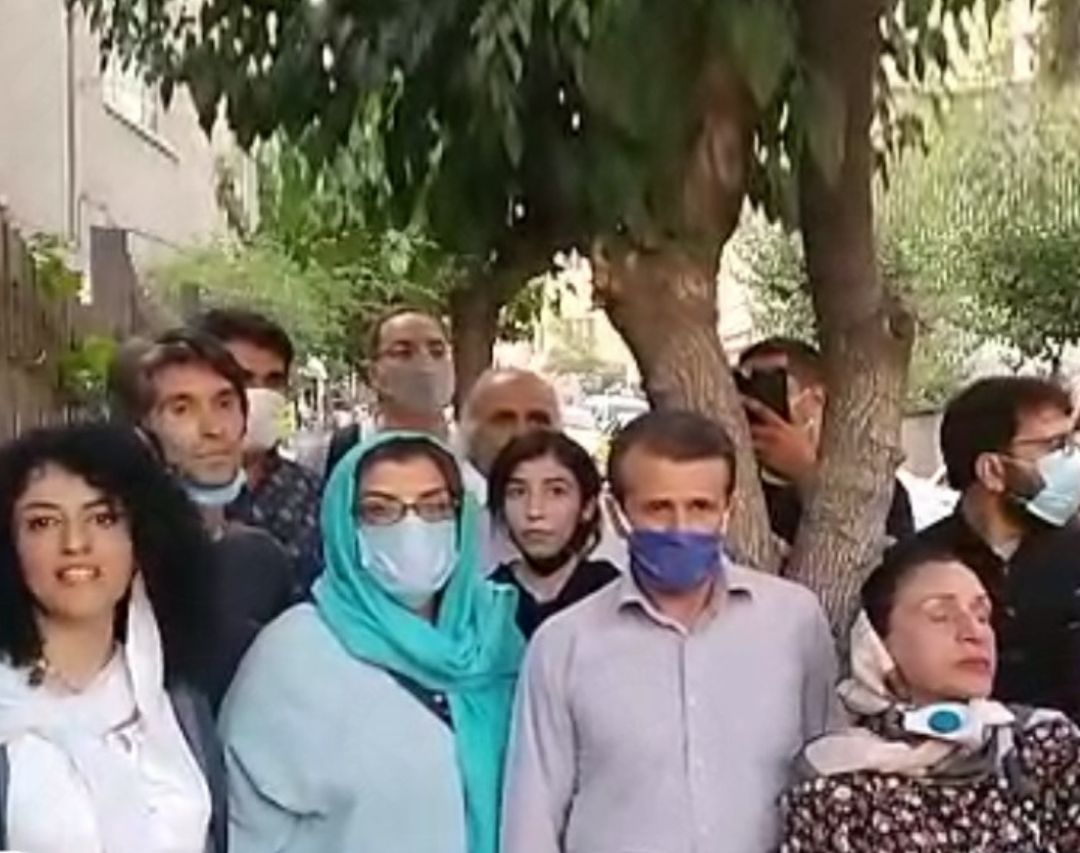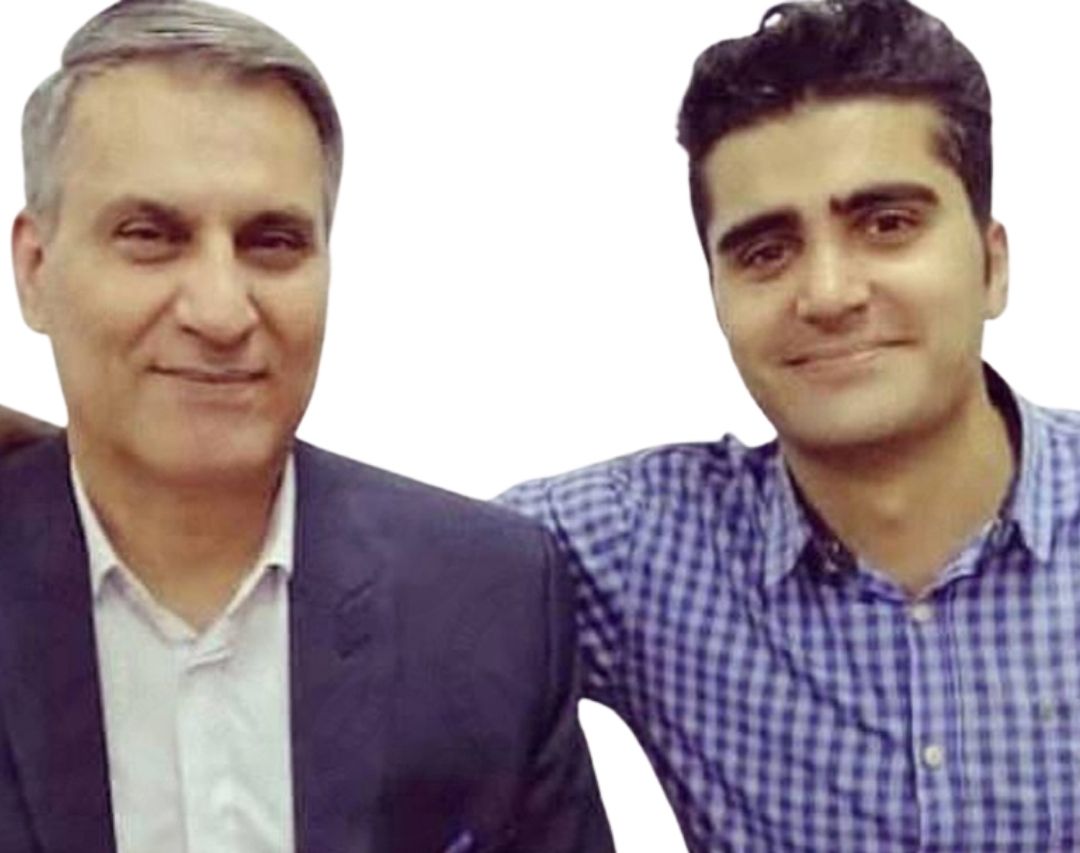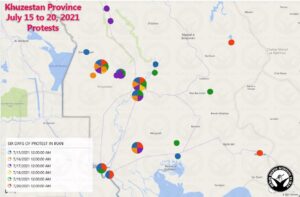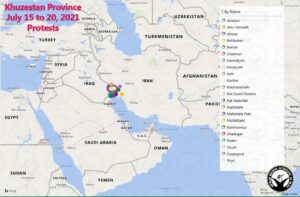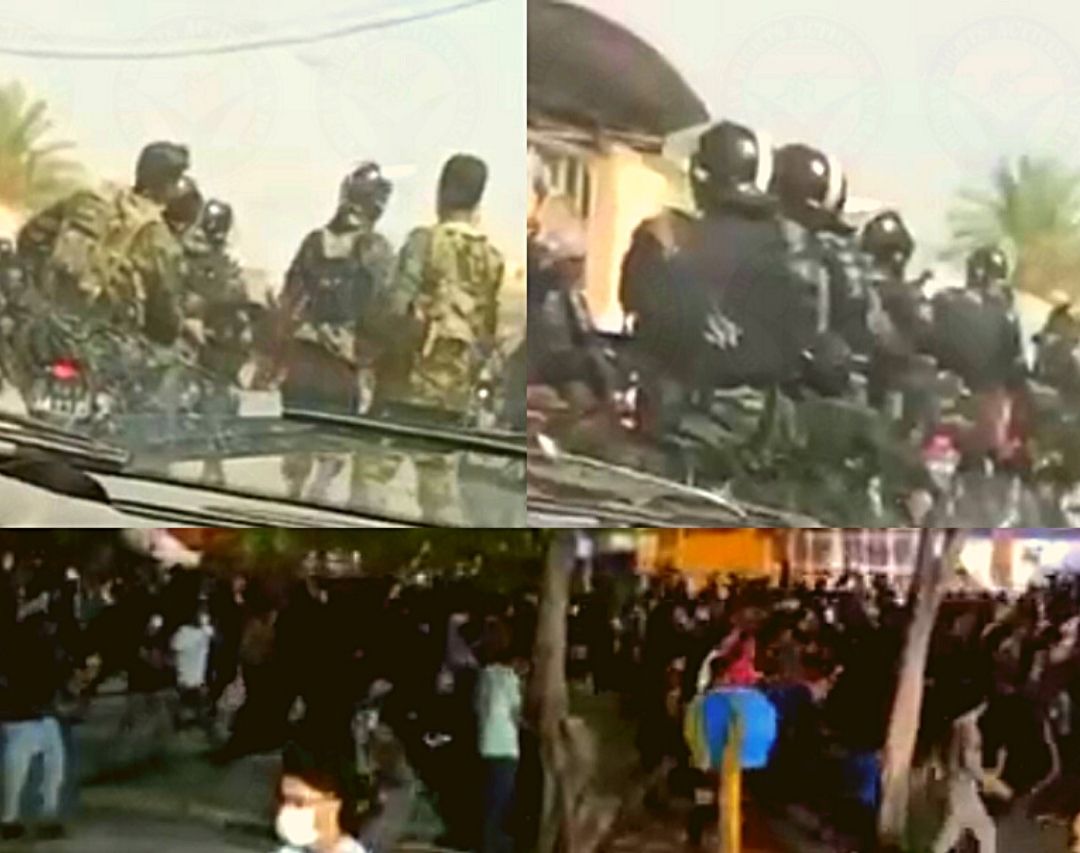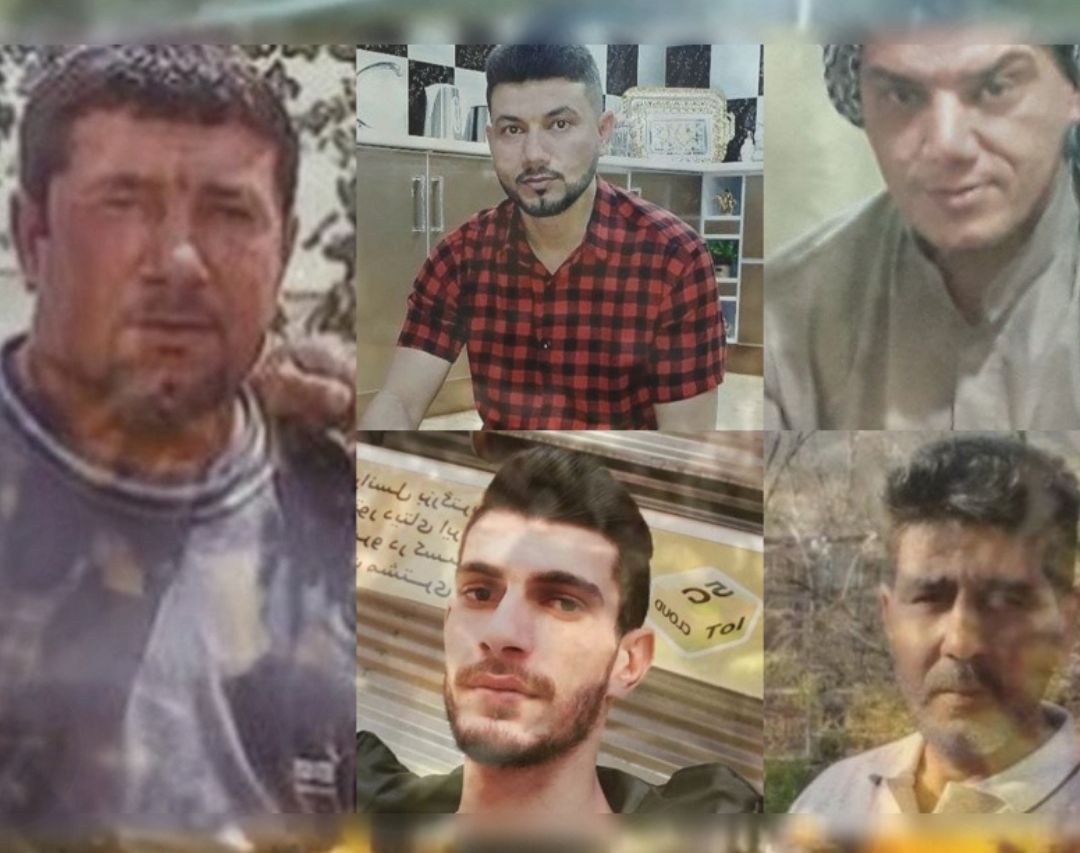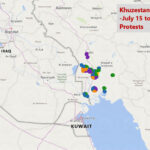The Khuzestan Water Crisis dominated this week’s protests in Iran. Citizens in over 28 cities held rallies in protest of the mismanagement from officials that has led to water shortages throughout the province and the drying of the Karun river. A number of labor protests took place as well, and in some areas the ongoing oil protests continued.
Friday July 16 & Saturday July 17
Farmers in Dezful, a group of workers Haft Tappeh Sugarcane Agro-Industry Co, fired workers and pest control workers of Haft Tappeh, members of Jam-e- Jam employees’ housing cooperative in Tehran, and a number of workers of Kut Abdollah municipality rallied protests and called on their demands to be met. On Saturday, the people of Khuzestan protested the water cut in the cities of Shavaur, Karkheh, Susangard, Kut Seyed Naeem, Shadegan, Ahvaz, Kut Abdollah, Hamidiyeh, and Shush. In addition, the people of Mashhad in Khorasan Razavi province joined the rallies in support of the people of Khuzestan.
Fired workers of Haft Tappeh:
Pest control workers of Haft Tappeh:
Rally of farmers in Dezful:
Workers of Haft Tappeh Sugarcane Agro-Industry:
Employees of Jam-e- Jam housing cooperative in Tehran:
Workers of Kut Abdollah municipality:
Sunday, July 18
A group of workers of Shafa Rud dam in Gilan, retirees in Rasht and Mashhad, a number of official forces of Ahvaz Water and Sewerage Company, retirees of Isfahan steel and Khuzestan steel in their provinces, a group of workers of Haft Tappeh company from all sectors for a sixth day in the row, a group of striking workers of the Dehdasht oil projects, and a number of welders of the Hafshejan pipeline project demanded that their requests be addressed. Meanwhile, on the fourth day of the protests in Khuzestan, People in Susangard, and Ahvaz marched rallies, which were met with shooting and tear gas from military forces.
Workers of Dehdasht and Hafshejan projects:
Workers of Shafa Rud dam in Gilan:
Retirees in Rasht and Mashhad:
Official forces of Ahvaz Water and Sewerage Company:
Retirees of Isfahan steel, and Khuzestan steel:
Workers Haft Tappeh Sugarcane Agro-Industry:
Monday July 19 and Tuesday July 20
A number of Caspian Institute shareholders in Tehran, a group of retirees of East Azerbaijan Telecommunication Company in Tabriz, a group of suburban bus and minibus drivers in Tehran, a numberof workers Haft Tappeh Sugarcane Agro-Industry workers from all sectors for the seventh and eighth consecutive day, collectors of burnt oil In Tehran, a group of workers from the Sungun copper mine and the staff of the Ajin Iron Company, and a number of fired workers from the municipality of District 2 in Ahvaz held rallies.
Additionally, a group of workers of the oil projects of Pian village in Khuzestan, a number of workers of the Lordegan oil projects, a group from workers in oil projects in Gahru, some operational staff of POGC company, a number of office employees of the oil industry in Fajr Jam gas refining company, contract workers of phases 9 and 10 of South Pars region, a number of farmers of Isfahan, a number of cattle breeders of Neishabour held protest rallies and called on their demands to be addressed. Also, a widespread protest of the people of Khuzestan against water cuts and mismanagement was ongoing in the fifth and sixth days, in different cities of Ahvaz, Mahshahr, Kut Abdollah, Khorramshahr, Chamran, Hamidiyeh, Ramhormoz, Susangar, Veys, Shadegan, Abadan and Izeh.
Caspian Institute shareholders:
East Azerbaijan Telecommunication Company in Tabriz:
Suburban bus and minibus drivers in Tehran:
Workers of Haft Tappeh Sugarcane Agro-Industry:
Workers of the Lordegan oil projects:
Workers from the municipality of District 2 in Ahvaz:
Workers of the oil projects of Pian village in Izeh, Khuzestan:
Cattle breeders of Neishabour:
Farmers in Isfahan:
Contract workers of phases 9 and 10 of South Pars region:
Official employees of Fajr Jam gas refinery:
Workers in oil projects in Gahru:
Operational staff of POGC company:
Wednesday, July 21
A number of film and television artists in Tehran rallied supporting protesters in Khuzestan. A group of workers from workers Haft Tappeh Sugarcane Agro-Industry from all sectors of the company held protest rallies for the ninth day in a row, calling their demands to be addressed. Also, widespread protests by the people of Khuzestan against water shortage and lack of water management continued in the cities of the province, including Ramshir,Susangard, Sheiban, Elahi, Ahvaz, Masjed Soleiman, Behbahan, and Bandar Mahshahr. In at least two other cities, including Yazdan in Isfahan and Bandar Genaveh in Bushehr province, people rallied in support of the people of Khuzestan.
Film and television artists in Tehran:
Workers from workers Haft Tappeh Sugarcane Agro-Industry:
Thursday, July 22
A number of workers and employees of Khorasan Railway, a group of farmers of Shabiluy village from Poldasht, West Azerbaijan province, a number of workers Haft Tappeh Sugarcane Agro-Industry from all sectors, for the tenth day in a row held protest rallies and called on their demands to be addressed. Also,a number of employed and retired teachers in Kermanshah province supported the protests of the people of Khuzestan by holding a rally in Kermanshah.
Teachers in Kermanshah supported the protests of the people of Khuzestan:
Workers and employees of Khorasan Railway:
Farmers of Shabiluy village in Poldasht, West Azerbaijan:
Workers Haft Tappeh Sugarcane Agro-Industry:




